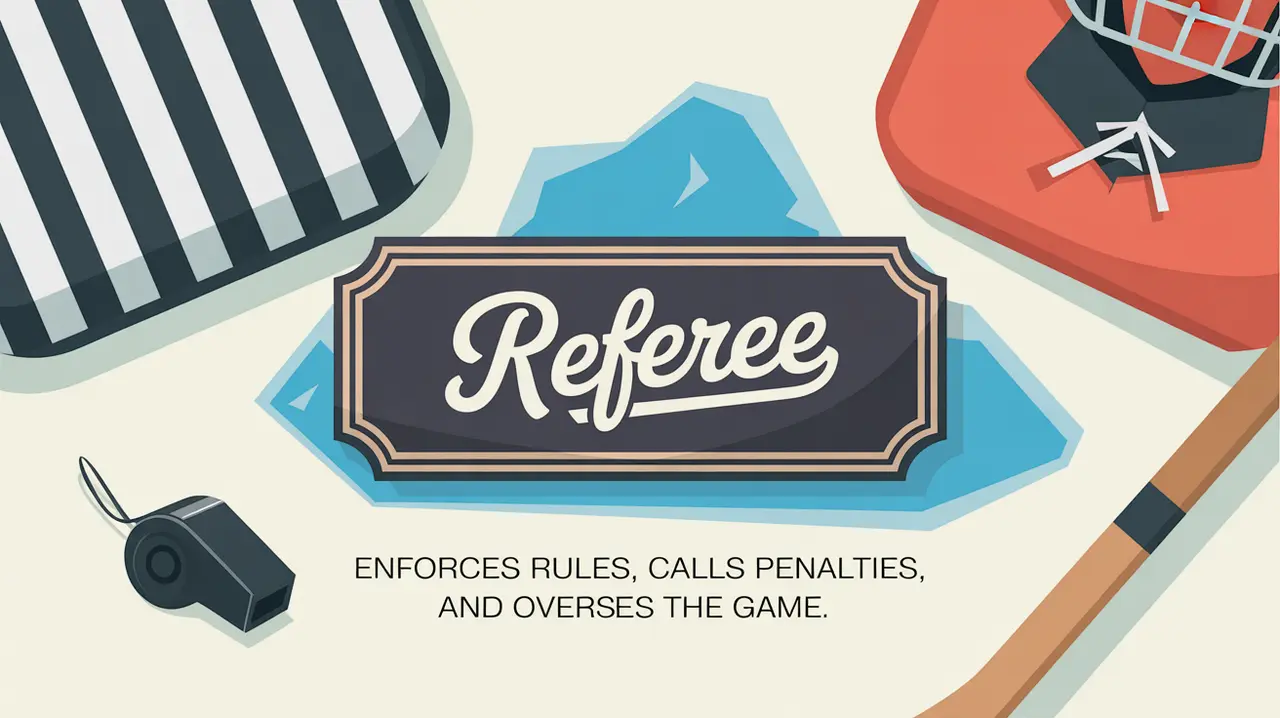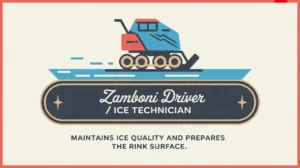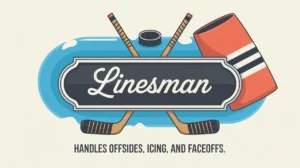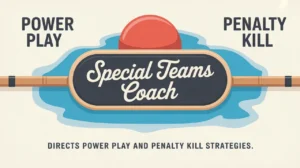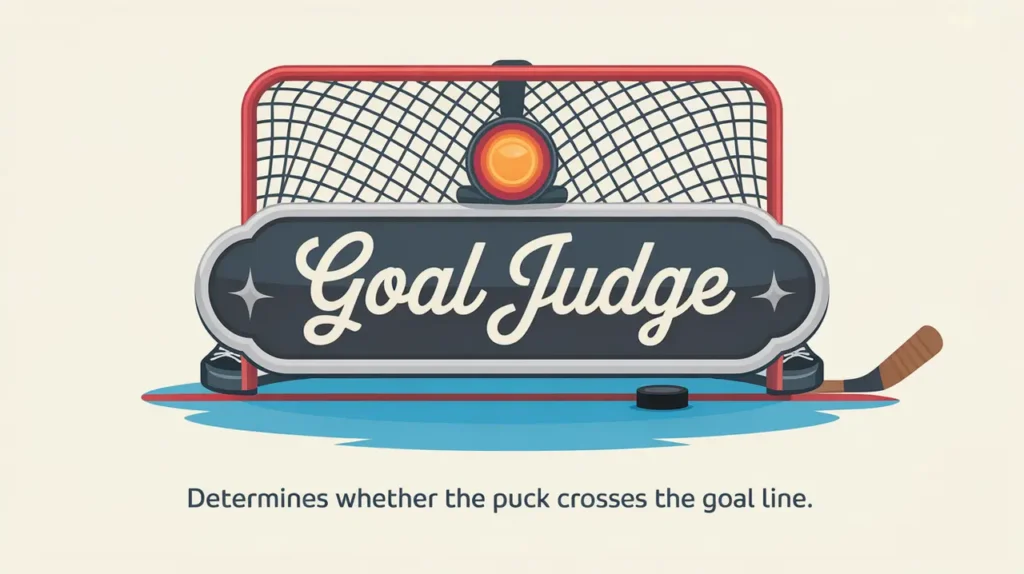Jim’s Intro to the Referee
Hi folks, Jim here, the only commentator who once tried to ref a youth scrimmage and gave myself a tripping penalty by stepping on my own whistle lanyard.
What is a referee?
A referee is an on-ice official responsible for enforcing the rules, assessing penalties, managing the flow of the game, and ensuring fair play. Along with linesmen (or linespersons), referees form the officiating crew, but they have final authority on penalty calls and major game decisions.
Referees skate with the players, maintain positioning to see the action clearly, and communicate with both teams to keep the game running smoothly. Their role blends judgment, authority, and game management skills.
How does it work?
Referees influence the game through rule enforcement, positioning, communication, and presence:
Rule Enforcement
- Referees call penalties, goals, and infractions, applying the rulebook consistently and fairly.
- They determine whether penalties are minor, double-minor, major, misconduct, or match, and signal accordingly.
Positioning and Awareness
- Referees move strategically to maintain the best sightlines, often trailing the play to observe developing actions without interfering.
- They constantly scan for off-puck infractions, dangerous plays, and goalmouth action.
Communication with Players and Coaches
- Effective referees explain calls clearly when necessary, defuse tensions through calm dialogue, and keep both benches informed.
- They use hand signals, verbal cues, and body language to maintain control without escalating conflicts.
Game Flow Management
- Beyond blowing the whistle, referees control tempo by recognizing when to let minor contact go and when to clamp down.
- Good officiating keeps the game fair while allowing its natural rhythm to shine.
Collaboration with Linesmen
- Referees rely on linesmen to monitor offsides, icing, and faceoffs, while focusing on penalties and goal calls.
- They work as a unit, communicating constantly to ensure accuracy.
Common Situations Involving Referees
- Assessing Penalties: Spotting a high stick, hook, or trip and signaling appropriately.
- Goal Decisions: Determining whether the puck crossed the line legally and under control.
- Breaking Up Scrums: Stepping in to separate players without escalating tension.
- Managing Intense Games: Keeping tempers under control during rivalry matchups or playoff intensity.
- Consulting with Linesmen: Double-checking details on disputed plays, delayed penalties, or high-stakes moments.
How do you make good decisions with it?
Great referees rely on positioning, composure, and consistency.
- See the Whole Play: Anticipate where the puck and players are going, not just where they are.
- Call What You See, Not What You Think: Avoid guessing. Certainty is essential.
- Stay Consistent: Apply standards evenly throughout the game.
- Communicate Calmly: Defuse frustration with clear, composed explanations.
- Control the Temperature: A well-timed whistle or word can prevent escalation.
How do you master it?
Mastering the referee role takes rule knowledge, skating ability, anticipation, and confidence. Referees train to position themselves effectively, read plays early, and communicate under pressure. They study the rulebook inside out and learn to handle disagreements with authority and respect. Mental toughness is essential. They must make split-second calls and stand by them.
What does it look like when done right?
A great referee is almost invisible. The game flows cleanly, penalties are called decisively, scrums are cooled quickly, and both teams know the standard being enforced. They’re in the right position at the right time, skate smoothly around traffic, and manage emotional spikes with firm calm.
Commentator’s Corner
Jim’s Take
Referees are like air. You don’t notice them when everything’s going right, but you sure notice when they’re not there.
Parent Tip
If your player is learning to officiate, emphasize skating, communication, and confidence. Refereeing develops awareness and leadership skills that translate beyond the rink.
Player Tip
Respect the stripes. Smart players know that understanding how referees think can help them adapt their game and stay out of trouble.
A Final Thought
Referees are the backbone of fair competition. Their judgment, positioning, and presence keep the game structured and safe. When mastered, the role blends rule enforcement with emotional intelligence, making the game better for everyone on the ice.

